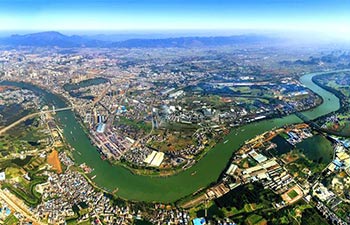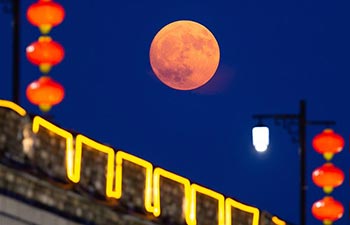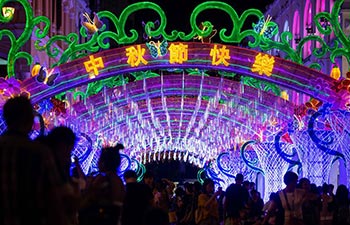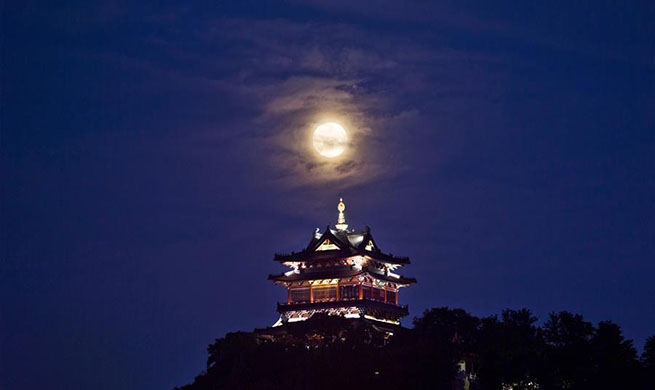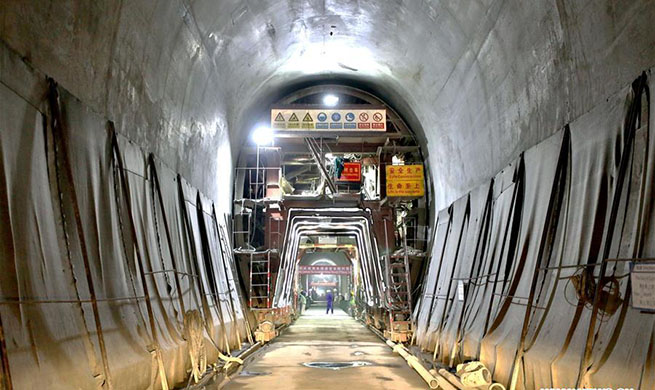KUNMING, Sept. 25 (Xinhua) -- Tens of thousands of amateur astronomers gathered in Lijiang, an ancient city with an 800-year history and one of China's largest optical telescopes, to observe the night sky in southwest China's Yunnan Province on Mid-Autumn Festival Monday.
To cater to the needs of different amateur astronomers, a group led by the city's science and technology association set up six astronomical telescopes at the center of Lijiang Gucheng, a popular tourist destination, with dozens of volunteers providing professional assistance.
"People waited in lines to use the equipment for about five minutes each, one by one, and we assisted and explained how to use the telescope and take good pictures," said volunteer Fang Zhou, a senior astronomy expert.
"Cameras, mobile phones and video recorders can all be used to capture the beauty of the moon," he said.
Some amateur astronomers took their own equipment to the spot to have a better view of the full moon.
"Compared with the naked eyes, astronomical telescopes can give us higher resolution, making details on the moon such as lunar mares and craters more clearly presented," said Zhao Yixiong, an expert with the association.
The ancient city was built at the end of the Song Dynasty (960-1279). Listed as a UNESCO World Heritage Site in 1997, Lijiang is one of the most famous ancient cities in China, and it boasts one of China's largest optical telescope, 2.4 meters in diameter and 8 meters tall, which began operation in 2007.
"With hardly any atmospheric turbulence, the astronomical viewing is excellent in Lijiang, which means the images seen here are less distorted. The city also has ideal weather conditions for sky watching as it has more than 200 clear days a year," Zhao said.
Moon watching is a traditional celebration on Mid-Autumn Festival, which falls on the 15th day of the eighth month on the Chinese lunar calendar, a full moon night between late September and early October.
"The increasing public thirst for knowledge about astronomy has made sky watching a popular activity in China," Zhao said.





